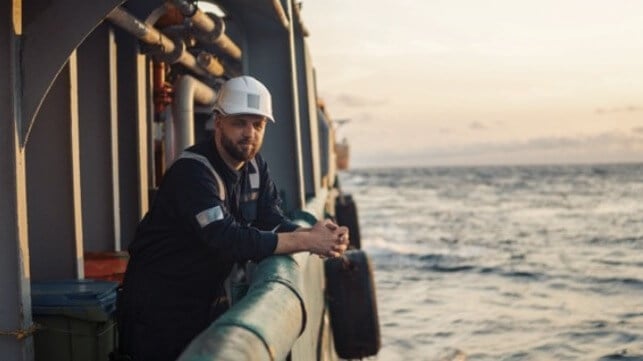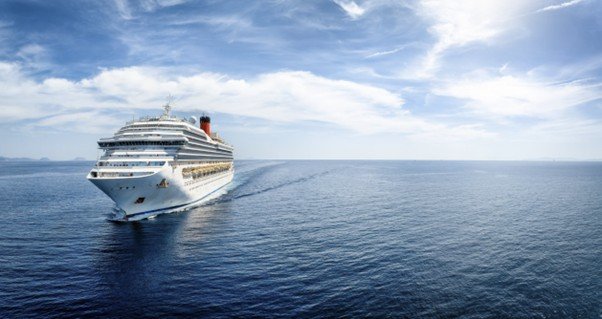Why Financial Wellbeing Is Central to Seafarer Welfare

Conversations about seafarer welfare rightly focus on life at sea: safety, rest, and fair pay. But there is another, often overlooked, element that shapes how seafarers feel about their work and their lives: what happens when they send money home.
For most seafarers, supporting loved ones through their earnings is not just a financial act but one of care and responsibility. Yet the simple process of transferring funds can be slow, expensive, and unpredictable. The anxiety that creates, wondering whether salaries have arrived safely or how much has been lost to hidden fees, is real and persistent.
I’ve seen first-hand how financial peace of mind affects mental wellbeing. When a seafarer knows money gets home quickly, fairly, and predictably, anxiety drops. That’s part of welfare under the Maritime Labour Convention: fair treatment, not just safety at sea.
What Seafarers Can Keep Matters
Pay and conditions matter, but so does what actually reaches a seafarer’s family. Too often, a meaningful share of wages disappears through high or unfair correspondent banking fees.
In the Philippines, a typical receiving-bank charge can equate to two bags of rice. When you think of it that way, it’s not a small loss.
That’s why we spend so much time examining payment routes, negotiating with banks, and finding compliant alternatives when traditional channels close. When sanctions hit a particular country, for example, we’ve spent months maintaining pathways so crews could still get paid.
We don’t stop when a route closes, we find another. The same persistence helped us eliminate a $30 correspondent charge in Myanmar by partnering locally to secure fairer rates. Behind every percentage point saved is a family meal. That keeps us pushing.
Scale that Drives Fairness
Scale gives us bargaining power on behalf of seafarers. Marcura’s acquisition of Brightwell Navigator means we ensure around 150,000 crew are paid in any given month across a total of half a million active accounts. We process in the region of $17 billion in payments every year.
We use that scale to negotiate better exchange rates and lower receiving-bank fees that no individual could secure alone. The result benefits everyone: less friction for shipowners and managers, and more confidence for crews.

Technology as an Enabler
Reliable onboard connectivity and new digital tools have transformed how seafarers stay in touch with their families. Financial services need to evolve just as fast.
Technology only matters if it removes worry. If a card goes missing mid-voyage, you can freeze it in the app, if you are concerned of the funds on the card you can unload them. If there’s a spare card on board, the captain provides it to you and you can re-link it so you’re not stuck. It will then reveal your PIN when you need it.
Those details aren’t glamorous, but they’re the difference between I’ll sort it out when I’m ashore and it’s already sorted.
Money worries aren’t just about cost; they’re about rhythm. Most seafarers work fixed contracts, nine months at sea, a few months at home. Income doesn’t flow evenly.
Families still need stability through those gaps. Crews told us they wanted a simple way to separate what they can spend from what they need to keep. So, we made it possible to hold back savings in the account and load a chosen amount onto the card when they reach port. It’s a small feature, but it gives real control and peace of mind: you can enjoy your time ashore knowing you’ve already looked after what matters most.
And because salary sometimes lands when connectivity is patchy, transfers to family can run automatically as soon as you’re paid. The money gets home on time, even if you’re still halfway across the world.
Partnerships Beyond Payments
Money worries and mental wellbeing are often intertwined. Anyone who’s spent time at sea knows how a small delay or unexpected charge can sit in the back of your mind for days. That’s why we’ve partnered with the International Seafarers’ Welfare and Assistance Network (ISWAN), the charity behind the 24/7 multilingual SeafarerHelp helpline.
The partnership grew from a shared understanding that financial and emotional welfare can’t really be separated. ISWAN supports seafarers and their families when life becomes difficult; we focus on removing the financial friction that so often adds to that strain.
As part of the collaboration, we have added ISWAN’s SeafarerHelp details inside the MarTrust app so crews can find the helpline from the same place they manage their money. As ISWAN CEO Simon Grainge said: “If support isn’t on their phone, it barely exists for today’s seafarers. Our partnership with MarTrust helps put help where it’s needed.”
It’s a partnership built on shared intent and mutual respect. ISWAN brings deep experience supporting seafarers through the hardest moments; we bring the daily connection that keeps them financially secure.
Together, we can listen, learn, and respond to what crews are really facing, using both technology and compassion to make life at sea a little fairer, and a little easier.
Putting Words into Practice
Welfare is built on consistency. It’s about doing what you say you’ll do, even when it’s not easy or visible. As a financial institution dedicated to the maritime industry, we see our role as delivering that reliability.
Our approach is straightforward: we combine technology, advocacy, and a genuine commitment to fairness. When we reduce unnecessary costs, or simply make payments work as they should, we make life a little easier for the people who keep global trade moving.
Errikos Andreakos is Chief Commercial Officer at MarTrust (a Marcura Company). This article is sponsored by Marcura.
The opinions expressed herein are the author's and not necessarily those of The Maritime Executive.
